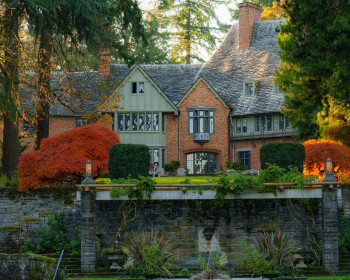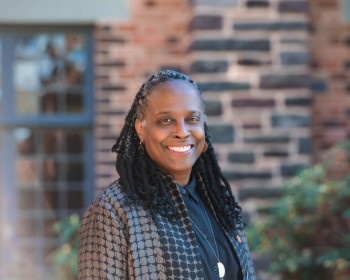Letter from President Wiewel, September 23
Dear Lewis & Clark Community,
As individuals and institutions, we are being tested by this year. If COVID-19, political strife, and racial injustice weren’t more than enough, so many in the West and elsewhere in the United States have been pushed to the brink by disastrous and deadly weather events. Just when we think things couldn’t get worse, they do. Many here in Oregon and California have had to flee their homes, suffered property damage, or worse, due to the recent conflagration of wildfires. The number of hurricanes churning through the Gulf Coast this year is, again, unprecedented. And for many of us the news of the death of Justice Ruth Bader Ginsburg, who spoke at the Law School’s commencement in 1992, the year before she joined the Supreme Court, was another major blow. We barely have time to grieve for the loss of life and livelihoods.
Although the closest wildfire blazes were miles away from our campus and across the Willamette River, there were anxious moments. The noxious smoke was very disruptive: We canceled in-person classes and activities for more than a week, and we struggled with air quality and climate control in many buildings. We are thankful that much-needed rain and shifting winds began to tamp down fires and clear the air so we could resume normal activities last Saturday.
Meanwhile, we’re still responding to COVID-19 and working toward a routine. We’re learning how to get better and better at a mix of remote and in-person learning while negotiating socially distanced lives. We’re learning too about the testing tools at our disposal. The question always to be answered: What is the balance between protection and overreaction?
Crisis layered upon crisis gives us a new perspective: We do the best we can relative to the circumstances. Our faculty work to accommodate the challenges their students are facing. And we see more clearly how our classes play a multidimensional role in the lives of students: educational, of course, but social and psychological, as well. We try to show each other a little grace when we can. And even when we are discouraged, we think critically about the root causes of our dilemmas.
So much of what’s going on in the world right now can be traced in some way to climate change. This is daunting, but it should not leave us hopeless. We saw in the spring, early in the global coronavirus shutdown, that even just a few weeks of reduced human activity had visible beneficial effects on the quality of air and water, wildlife, and other aspects of the natural world. Adaptation for climate change does not require that we bring the world to a screeching halt. Even measured progress will have positive results.
There are ways to take action, and Lewis & Clark has a long history of tackling these issues. Our law school’s Environmental and Natural Resources Program, including its new Global Law Alliance for Animals and the Environment, produces leaders ready to meet challenges and fight the good fight. Our undergraduate Environmental Studies Program each year sponsors a symposium–ENVX runs from October 20 to 22–that speaks to how our students cross intellectual, geographic, and communications boundaries, working toward mutual respect and collaborative solutions. Our Graduate School fosters healing connections between the natural world and mental health in its Ecopsychology Program, and our Office of Sustainability works toward making sure that our campus practices are responding to operational challenges.
Of course, national, state, and local policies and action are vital keys to progress on these issues. So, I’ll say it again: Please make sure you’re registered to vote in our upcoming elections. Our democracy depends on our participation.
We are being tested, no doubt. So when we can muster the strength, we should do more than simply get through the crises of the day. We should learn from them to make ourselves better as individuals, and the world a better place.
Before I close, I’ll highlight one example of students who are making a difference. Last week seniors Ramez Attia and Matthew Brown won the statewide InventOR competition for their work on a breathalyzer that disables a car’s ignition if the driver has been drinking. Their project, which found its genesis in their Winterim experience with the Bates Center for Entrepreneurship and Leadership, competed against excellent teams from far larger schools, including the University of Oregon, Oregon State, and Oregon Health & Science University. Congratulations to Ramez and Matthew and all who mentored them!
Thanks, all of you, for your dedication to our educational community.
Sincerely,
Wim Wiewel
President
More Office of the President Stories
The Office of the President is located in Frank Manor House on the Undergraduate Campus.
MSC: 33
email president@lclark.edu
voice 503-768-7680
fax 503-768-7688
President Robin Holmes-Sullivan
The Office of the President
Lewis & Clark
615 S. Palatine Hill Road MSC 33
Portland OR 97219

